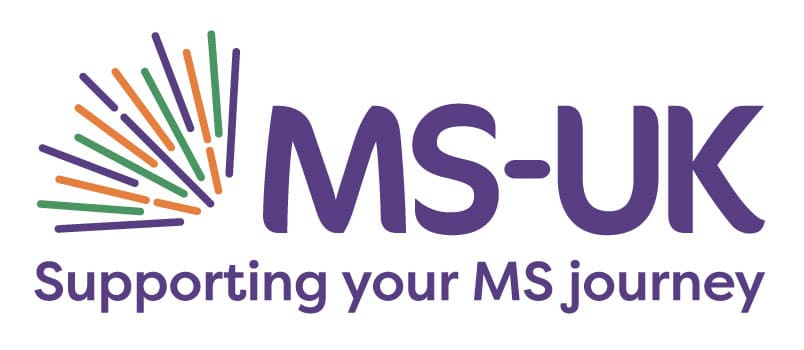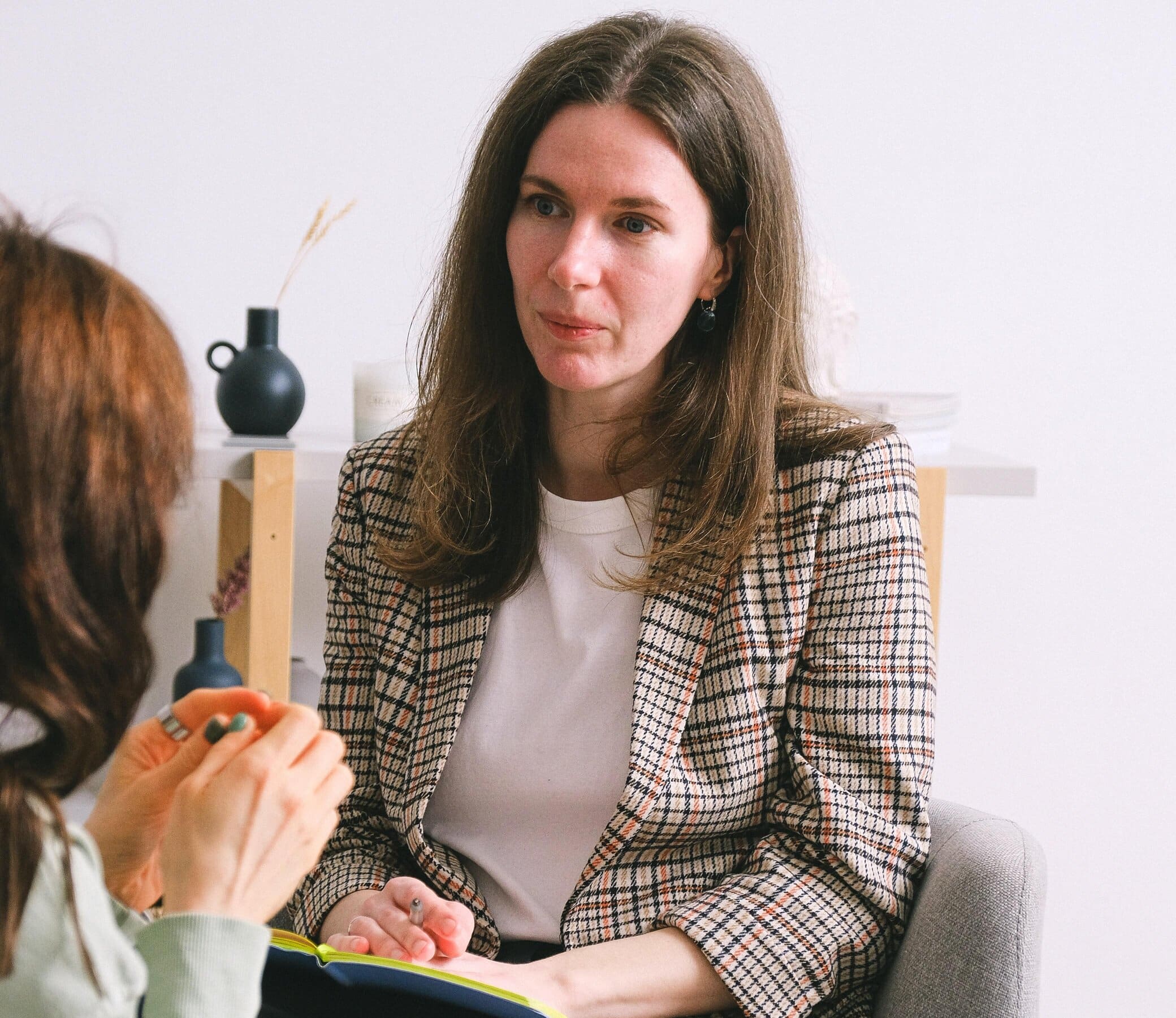
The Emotional and Physical Challenges of Cancer
Cancer, a term that echoes with intensity and fear, is not just a physical ailment but a life-altering experience that impacts every facet of one’s existence. The journey from diagnosis to treatment and beyond is fraught with both emotional and physical challenges that profoundly shape a person’s life.
The emotional landscape of cancer is complex and ever-changing. Initially, the shock of diagnosis can be overwhelming, plunging individuals into disbelief and confusion. This is often followed by a deluge of fear and anxiety about the future, treatment options, and the impact on family and work life.

Emotional Turmoil: Navigating a Sea of Feelings
Anxiety and Uncertainty: The uncertainty surrounding cancer’s outcome is a significant source of anxiety. Patients often grapple with questions about their mortality, the effectiveness of treatments, and the prospect of pain and suffering.
Depression and Grief: Many experience depression, feeling a profound sense of loss – loss of health, normalcy, and plans. This grief is not only for what has been lost but also the anticipated losses.
Isolation and Loneliness: Despite being surrounded by loved ones, cancer patients often report feelings of isolation. The uniqueness of their experience can create a barrier, making it difficult for others to comprehend their emotional state fully.
Read more
Impact on Identity and Self-Esteem: The physical changes brought on by cancer and its treatments can affect a person’s self-image and confidence, leading to a revaluation of their identity and place in the world.
Stress and Overwhelm: Managing the logistics of treatment while juggling everyday responsibilities can lead to high levels of stress, exacerbating both emotional and physical symptoms.
The Unique Perspective of Psychotherapists with Personal Cancer Experience
The intersection of personal experience and professional expertise gives psychotherapists who have faced cancer a distinctive edge in counselling others with similar diagnoses. Their unique perspective is not just built on theoretical knowledge but also on the lived reality of the disease, offering a profound level of empathy and understanding that can be deeply therapeutic.
Empathetic Understanding Beyond Theory: These therapists bring unparalleled empathy, having walked the same path as their clients. Their understanding goes beyond clinical knowledge; they’ve felt the fear, grappled with uncertainty, and endured the physical and emotional toll of cancer treatments. This empathy creates a connection that can be more nuanced and deeply felt than in a traditional therapist-client relationship.
Shared Experience, Shared Strength: When a therapist can say, “I’ve been there,” it adds a layer of credibility and trust that can be incredibly reassuring to a client. This shared experience fosters a sense of camaraderie and understanding. It allows clients to feel seen and understood on a level that transcends the usual patient-therapist dynamic.
Read more
Realistic Hope and Inspiration: A therapist who has personally battled cancer can be a living testament to survival and resilience. They offer not just sympathy but a realistic sense of hope. Their journey from patient to survivor to therapist is inspiring, offering tangible proof that life can not only continue but also thrive after a cancer diagnosis.
Tailored Coping Strategies: Having navigated the journey themselves, these therapists are well-equipped to offer practical, tailored advice on coping with the side effects of treatment, managing emotional upheaval, and adjusting to changes in lifestyle and self-image. Their suggestions come from a place of personal trial and error, offering more relatable and often more practical strategies.
A Holistic Approach to Healing: These therapists are likely to adopt a more holistic view of healing, understanding intimately that cancer affects more than just the body. They appreciate the importance of nurturing emotional health, spiritual well-being, and social connections and are adept at guiding their clients in exploring these areas.
Advocacy and Empowerment: Having navigated the healthcare system as a patient, therapists with personal cancer experience are often passionate advocates for their clients. They can offer guidance on communicating effectively with medical professionals, navigating the healthcare system, and advocating for one’s needs.
Addressing the Fear of Recurrence: One of the most challenging aspects of cancer survivorship is the fear of recurrence. These therapists, having faced this fear themselves, are uniquely positioned to help clients cope with these anxieties, offering strategies that are both empathetic and grounded in personal experience.
Conclusion: Psychotherapists with personal cancer experience bring a rare and invaluable perspective to their practice. Their combination of professional training and personal insight offers support and understanding that can be particularly resonant for individuals battling cancer. Through their shared experience, they provide therapy and a partnership in the truest sense, helping clients navigate one of life’s most challenging journeys with empathy, understanding, and hope.

Empathy in Psychotherapy: A Crucial Element
Empathy is the cornerstone of psychotherapy, particularly in the realm of cancer counselling, where it transcends being a mere therapeutic tool. This empathetic connection forges a unique bond between therapist and client, transforming a clinical setting into a sanctuary of understanding and healing.
Empathy in psychotherapy is about the therapist’s ability to deeply understand and connect with the client’s feelings, experiences, and worldviews. This connection is not solely cognitive; it’s emotional, allowing the therapist to understand and feel with the client. Such an empathetic bond validates the client’s experiences, ensuring they feel genuinely heard and comprehended profoundly.
Empathy in the therapeutic relationship creates an environment of safety and trust. Clients are more inclined to share their innermost thoughts and feelings when they feel genuinely understood and cared for by their therapist. This level of openness is vital for effective therapy and emotional healing.
Read more
The collaborative and trusting relationship between the therapist and the client- is critical to successful therapy. Empathy is fundamental in building this alliance, fostering a partnership where both parties work together towards healing and growth.
It is crucial in facilitating emotional healing and growth, helping normalise and validate clients’ feelings. This aspect is essential in cancer therapy, where patients often grapple with complex and overwhelming emotions.
Moreover, an empathetic understanding of a client’s experience enables therapists to tailor their interventions more effectively. By truly grasping the client’s emotional state, therapists can select approaches and techniques most likely to resonate and aid the individual.
This bespoke approach ensures that therapy is not just a standard procedure but a personalised journey of healing tailored to the unique emotional landscape of each client.
In summary, empathy is not just a component of psychotherapy; it’s the very essence that makes therapy a transformative experience, particularly in the challenging journey of cancer counselling. The empathetic rapport between therapist and client paves the way for genuine understanding, deep healing, and personal growth.

The Psychotherapist’s Perspective
From the psychotherapist’s perspective, especially those with personal experience of cancer, the therapeutic journey embodies a unique blend of professional understanding and profound personal insight.
These therapists bring a multifaceted approach to counselling rooted in their intimate knowledge of the disease. Their education and training do not just inform their perspective but are deeply coloured by their own experiences with cancer.
This blend of personal and professional insights equips them to offer a nuanced and empathetic approach to therapy, one that is sensitive to the complex interplay of emotions, physical symptoms, and psychological challenges faced by cancer patients.
These therapists often exhibit a heightened empathy stemming from their journey through the disease. This empathy goes beyond clinical sympathy; it’s a profound understanding of the fear, uncertainty, and physical pain that accompanies a cancer diagnosis.
They understand the emotional rollercoaster that patients experience – the initial shock, the struggle to come to terms with the diagnosis, and the ongoing battle to maintain hope and positivity. Their experience with these emotions allows them to offer support and understanding that resonates deeply with their clients.
Read more
Furthermore, psychotherapists with a personal cancer history often adopt a holistic approach to therapy. They recognise that cancer affects not just the body but the whole person – including their mental health, emotional well-being, social relationships, and spiritual beliefs.
They are adept at addressing the multifaceted impacts of cancer, offering guidance and support that encompasses all aspects of a patient’s life. This holistic approach can be exceptionally comforting to patients, as it acknowledges and addresses the full spectrum of their experience.
Additionally, these therapists are often keenly aware of the importance of resilience and hope. Having navigated the healthcare system themselves, they understand the challenges and frustrations that can accompany cancer treatment.
They can offer practical advice on dealing with the medical system, managing side effects, and finding resources for additional support. Their insights into the practical aspects of living with cancer can be invaluable to patients who are navigating this complex journey for the first time.
In conclusion, psychotherapists with personal experience of cancer bring a unique and invaluable perspective to their practice. Their blend of professional training and personal insight allows them to provide empathetic, holistic, and practical support to their clients. They offer more than just therapy; they provide a partnership that can help guide cancer patients through one of the most challenging experiences of their lives.

Conclusion
In conclusion, the journey through cancer is a multifaceted one, intertwining physical health with emotional, mental, and spiritual well-being.
The unique perspectives of psychotherapists with personal cancer experience, coupled with the essential role of empathy in psychotherapy, provide profound insights into the patient’s experience.
These professionals offer clinical expertise and a profoundly personal understanding and connection that can be extraordinarily comforting and empowering for cancer patients.
Moreover, the holistic approach to cancer care underscores the importance of treating the person, not just the disease. This approach recognises the intricate interplay between the physical symptoms of cancer and the emotional, psychological, and social aspects of the patient’s life.
By addressing all these elements, holistic care aims to enhance patients’ and their families’ overall quality of life, providing support far beyond the confines of traditional medical treatment.
Read more
The journey of cancer is undoubtedly challenging, filled with physical hardships and emotional turmoil.
However, patients are not alone in their journey through the empathetic guidance of skilled therapists, the strength of shared experiences, and the comprehensive support of holistic care. This support network plays a crucial role in navigating the complexities of cancer, offering hope, understanding, and a path towards healing and resilience.
As we reflect on the various aspects of cancer care discussed in this article, the journey is as individual as the patients themselves.
The blend of professional healthcare, empathetic counselling, and holistic support creates a robust framework, enabling patients to face their journey with strength, dignity, and hope. Ultimately, it is about nurturing the whole person and providing a compassionate and comprehensive approach to cancer care.
Hear From Those We’ve Supported: Client Testimonials
Discover the real impact of our services through the words of those who have experienced them firsthand. Below, you’ll find heartfelt testimonials from clients who have navigated their cancer journey with our support.
These stories reflect the challenges faced and the strength and resilience fostered through our mental health counselling services.
Each testimonial offers a unique insight into coping with a cancer diagnosis and the transformative power of empathetic, experienced counselling. Read on to understand the actual difference our services have made in the lives of individuals and their families.
“After my diagnosis, I felt lost and confused. The support I received from my therapist at this service was life-changing. Not only did they have professional expertise, but their personal experience with cancer made me feel truly understood. It was comforting to talk to someone who genuinely knew what I was going through.” – Jane, Leeds
“I was amazed at how quickly I was able to start my counselling sessions after reaching out. The swift response and the ease of setting up appointments online was a relief during a time when everything else seemed so complicated.” – Sarah, Manchester
“From my first enquiry to my regular sessions, the customer service has been exceptional. The team was attentive, compassionate, and always willing to go the extra mile to accommodate my needs. Their responsiveness and care made a significant difference in my experience.” – Tony, Bristol
Free Funding
♣ Applications 18+
♣ Most Regions within England
& Wales
♣ Discharged as unsuitable for
local mental health (IAPT)
♣ Based on your exceptional
circumstances
♣ Free Assessment Session

Mobile
01932881849
Our Blogs
Early Diagnosed Cancer in Adults
The Emotional and Physical Challenges of Cancer
Cancer, a term that echoes with intensity and fear, is not just a physical ailment but a life-altering experience that impacts every facet of one’s existence. The journey from diagnosis to treatment and beyond is fraught with both emotional and physical challenges that profoundly shape a person’s life.
The emotional landscape of cancer is complex and ever-changing. Initially, the shock of diagnosis can be overwhelming, plunging individuals into disbelief and confusion. This is often followed by a deluge of fear and anxiety about the future, treatment options, and the impact on family and work life.
Emotional Turmoil: Navigating a Sea of Feelings
Anxiety and Uncertainty: The uncertainty surrounding cancer’s outcome is a significant source of anxiety. Patients often grapple with questions about their mortality, the effectiveness of treatments, and the prospect of pain and suffering.
Depression and Grief: Many experience depression, feeling a profound sense of loss – loss of health, normalcy, and plans. This grief is not only for what has been lost but also the anticipated losses.
Isolation and Loneliness: Despite being surrounded by loved ones, cancer patients often report feelings of isolation. The uniqueness of their experience can create a barrier, making it difficult for others to comprehend their emotional state fully.

Impact on Identity and Self-Esteem: The physical changes brought on by cancer and its treatments can affect a person’s self-image and confidence, leading to a revaluation of their identity and place in the world.
Stress and Overwhelm: Managing the logistics of treatment while juggling everyday responsibilities can lead to high levels of stress, exacerbating both emotional and physical symptoms.
The Unique Perspective of Psychotherapists with Personal Cancer Experience
The intersection of personal experience and professional expertise gives psychotherapists who have faced cancer a distinctive edge in counselling others with similar diagnoses. Their unique perspective is not just built on theoretical knowledge but also on the lived reality of the disease, offering a profound level of empathy and understanding that can be deeply therapeutic.
Empathetic Understanding Beyond Theory: These therapists bring unparalleled empathy, having walked the same path as their clients. Their understanding goes beyond clinical knowledge; they’ve felt the fear, grappled with uncertainty, and endured the physical and emotional toll of cancer treatments. This empathy creates a connection that can be more nuanced and deeply felt than in a traditional therapist-client relationship.
Shared Experience, Shared Strength: When a therapist can say, “I’ve been there,” it adds a layer of credibility and trust that can be incredibly reassuring to a client. This shared experience fosters a sense of camaraderie and understanding. It allows clients to feel seen and understood on a level that transcends the usual patient-therapist dynamic.
Realistic Hope and Inspiration: A therapist who has personally battled cancer can be a living testament to survival and resilience. They offer not just sympathy but a realistic sense of hope. Their journey from patient to survivor to therapist is inspiring, offering tangible proof that life can not only continue but also thrive after a cancer diagnosis.
Tailored Coping Strategies: Having navigated the journey themselves, these therapists are well-equipped to offer practical, tailored advice on coping with the side effects of treatment, managing emotional upheaval, and adjusting to changes in lifestyle and self-image. Their suggestions come from a place of personal trial and error, offering more relatable and often more practical strategies.
A Holistic Approach to Healing: These therapists are likely to adopt a more holistic view of healing, understanding intimately that cancer affects more than just the body. They appreciate the importance of nurturing emotional health, spiritual well-being, and social connections and are adept at guiding their clients in exploring these areas.
Read More
Advocacy and Empowerment: Having navigated the healthcare system as a patient, therapists with personal cancer experience are often passionate advocates for their clients. They can offer guidance on communicating effectively with medical professionals, navigating the healthcare system, and advocating for one’s needs.
Addressing the Fear of Recurrence: One of the most challenging aspects of cancer survivorship is the fear of recurrence. These therapists, having faced this fear themselves, are uniquely positioned to help clients cope with these anxieties, offering strategies that are both empathetic and grounded in personal experience.
Conclusion: Psychotherapists with personal cancer experience bring a rare and invaluable perspective to their practice. Their combination of professional training and personal insight offers support and understanding that can be particularly resonant for individuals battling cancer. Through their shared experience, they provide therapy and a partnership in the truest sense, helping clients navigate one of life’s most challenging journeys with empathy, understanding, and hope.
Empathy in Psychotherapy: A Crucial Element
Empathy is the cornerstone of psychotherapy, particularly in the realm of cancer counselling, where it transcends being a mere therapeutic tool. This empathetic connection forges a unique bond between therapist and client, transforming a clinical setting into a sanctuary of understanding and healing.
Empathy in psychotherapy is about the therapist’s ability to deeply understand and connect with the client’s feelings, experiences, and worldviews. This connection is not solely cognitive; it’s emotional, allowing the therapist to understand and feel with the client. Such an empathetic bond validates the client’s experiences, ensuring they feel genuinely heard and comprehended profoundly.
Empathy in the therapeutic relationship creates an environment of safety and trust. Clients are more inclined to share their innermost thoughts and feelings when they feel genuinely understood and cared for by their therapist. This level of openness is vital for effective therapy and emotional healing.

A Solid Therapeutic Alliance
The collaborative and trusting relationship between the therapist and the client- is critical to successful therapy. Empathy is fundamental in building this alliance, fostering a partnership where both parties work together towards healing and growth. It is crucial in facilitating emotional healing and growth, helping normalise and validate clients’ feelings. This aspect is essential in cancer therapy, where patients often grapple with complex and overwhelming emotions.
Read More
Moreover, an empathetic understanding of a client’s experience enables therapists to tailor their interventions more effectively. By truly grasping the client’s emotional state, therapists can select approaches and techniques most likely to resonate and aid the individual. This bespoke approach ensures that therapy is not just a standard procedure but a personalised journey of healing tailored to the unique emotional landscape of each client.
In summary, empathy is not just a component of psychotherapy; it’s the very essence that makes therapy a transformative experience, particularly in the challenging journey of cancer counselling. The empathetic rapport between therapist and client paves the way for genuine understanding, deep healing, and personal growth.
The Psychotherapist’s Perspective
From the psychotherapist’s perspective, especially those with personal experience of cancer, the therapeutic journey embodies a unique blend of professional understanding and profound personal insight. These therapists bring a multifaceted approach to counselling rooted in their intimate knowledge of the disease. Their education and training do not just inform their perspective but are deeply coloured by their own experiences with cancer. This blend of personal and professional insights equips them to offer a nuanced and empathetic approach to therapy, one that is sensitive to the complex interplay of emotions, physical symptoms, and psychological challenges faced by cancer patients.
These therapists often exhibit a heightened empathy stemming from their journey through the disease. This empathy goes beyond clinical sympathy; it’s a profound understanding of the fear, uncertainty, and physical pain that accompanies a cancer diagnosis. They understand the emotional rollercoaster that patients experience – the initial shock, the struggle to come to terms with the diagnosis, and the ongoing battle to maintain hope and positivity. Their experience with these emotions allows them to offer support and understanding that resonates deeply with their clients.
Furthermore, psychotherapists with a personal cancer history often adopt a holistic approach to therapy. They recognise that cancer affects not just the body but the whole person – including their mental health, emotional well-being, social relationships, and spiritual beliefs. They are adept at addressing the multifaceted impacts of cancer, offering guidance and support that encompasses all aspects of a patient’s life. This holistic approach can be exceptionally comforting to patients, as it acknowledges and addresses the full spectrum of their experience.
Additionally, these therapists are often keenly aware of the importance of resilience and hope. Having navigated the healthcare system themselves, they understand the challenges and frustrations that can accompany cancer treatment. They can offer practical advice on dealing with the medical system, managing side effects, and finding resources for additional support. Their insights into the practical aspects of living with cancer can be invaluable to patients who are navigating this complex journey for the first time.
In conclusion, psychotherapists with personal experience of cancer bring a unique and invaluable perspective to their practice. Their blend of professional training and personal insight allows them to provide empathetic, holistic, and practical support to their clients. They offer more than just therapy; they provide a partnership that can help guide cancer patients through one of the most challenging experiences of their lives.
Conclusion
In conclusion, the journey through cancer is a multifaceted one, intertwining physical health with emotional, mental, and spiritual well-being. The unique perspectives of psychotherapists with personal cancer experience, coupled with the essential role of empathy in psychotherapy, provide profound insights into the patient’s experience. These professionals offer clinical expertise and a profoundly personal understanding and connection that can be extraordinarily comforting and empowering for cancer patients.
Moreover, the holistic approach to cancer care underscores the importance of treating the person, not just the disease. This approach recognises the intricate interplay between the physical symptoms of cancer and the emotional, psychological, and social aspects of the patient’s life. By addressing all these elements, holistic care aims to enhance patients’ and their families’ overall quality of life, providing support far beyond the confines of traditional medical treatment.

The journey of cancer is undoubtedly challenging, filled with physical hardships and emotional turmoil. However, patients are not alone in their journey through the empathetic guidance of skilled therapists, the strength of shared experiences, and the comprehensive support of holistic care. This support network plays a crucial role in navigating the complexities of cancer, offering hope, understanding, and a path towards healing and resilience.
Read More
As we reflect on the various aspects of cancer care discussed in this article, the journey is as individual as the patients themselves. The blend of professional healthcare, empathetic counselling, and holistic support creates a robust framework, enabling patients to face their journey with strength, dignity, and hope. Ultimately, it is about nurturing the whole person and providing a compassionate and comprehensive approach to cancer care.
Hear From Those We’ve Supported: Client Testimonials
Discover the real impact of our services through the words of those who have experienced them firsthand. Below, you’ll find heartfelt testimonials from clients who have navigated their cancer journey with our support. These stories reflect the challenges faced and the strength and resilience fostered through our mental health counselling services.
Each testimonial offers a unique insight into coping with a cancer diagnosis and the transformative power of empathetic, experienced counselling. Read on to understand the actual difference our services have made in the lives of individuals and their families
“After my diagnosis, I felt lost and confused. The support I received from my therapist at this service was life-changing. Not only did they have professional expertise, but their personal experience with cancer made me feel truly understood. It was comforting to talk to someone who genuinely knew what I was going through.” – Jane, Leeds
“I was amazed at how quickly I was able to start my counselling sessions after reaching out. The swift response and the ease of setting up appointments online was a relief during a time when everything else seemed so complicated.” – Sarah, Manchester
“From my first enquiry to my regular sessions, the customer service has been exceptional. The team was attentive, compassionate, and always willing to go the extra mile to accommodate my needs. Their responsiveness and care made a significant difference in my experience.” – Tony, Bristol
“My counsellor was not just a professional but also a friend in my journey. They approached each session with such warmth and friendliness, making it easier for me to open up and share my feelings. This friendly atmosphere has been a huge part of my positive experience with the service.” – Daniel, Glasgow
Free Funding
♣ Applications 18+
♣ Most Regions in England and Wales
♣ Free Assessment Session
♣ Based on Your
Exceptional Circumstances
of Living with Cancer
Other Referrals
♣ Professional Organisations
♣ Mental Health Providers
♣ Friends & Family
♣ Carers
♣ GP’s
Our Blogs

Early Diagnosed Cancer in Adults
A Psychotherapists ProspectiveThe Emotional and Physical Challenges of Cancer
Cancer, a term that echoes with intensity and fear, is not just a physical ailment but a life-altering experience that impacts every facet of one’s existence. The journey from diagnosis to treatment and beyond is fraught with both emotional and physical challenges that profoundly shape a person’s life.
The emotional landscape of cancer is complex and ever-changing. Initially, the shock of diagnosis can be overwhelming, plunging individuals into disbelief and confusion. This is often followed by a deluge of fear and anxiety about the future, treatment options, and the impact on family and work life.

The Unique Perspective of Psychotherapists with Personal Cancer Experience
The intersection of personal experience and professional expertise gives psychotherapists who have faced cancer a distinctive edge in counselling others with similar diagnoses. Their unique perspective is not just built on theoretical knowledge but also on the lived reality of the disease, offering a profound level of empathy and understanding that can be deeply therapeutic.
Empathetic Understanding Beyond Theory: These therapists bring unparalleled empathy, having walked the same path as their clients. Their understanding goes beyond clinical knowledge; they’ve felt the fear, grappled with uncertainty, and endured the physical and emotional toll of cancer treatments. This empathy creates a connection that can be more nuanced and deeply felt than in a traditional therapist-client relationship.
Shared Experience, Shared Strength: When a therapist can say, “I’ve been there,” it adds a layer of credibility and trust that can be incredibly reassuring to a client. This shared experience fosters a sense of camaraderie and understanding. It allows clients to feel seen and understood on a level that transcends the usual patient-therapist dynamic.
Realistic Hope and Inspiration:
A therapist who has personally battled cancer can be a living testament to survival and resilience. They offer not just sympathy but a realistic sense of hope. Their journey from patient to survivor to therapist is inspiring, offering tangible proof that life can not only continue but also thrive after a cancer diagnosis.
A Holistic Approach to Healing:
These therapists are likely to adopt a more holistic view of healing, understanding intimately that cancer affects more than just the body. They appreciate the importance of nurturing emotional health, spiritual well-being, and social connections and are adept at guiding their clients in exploring these areas.
Addressing the Fear of Recurrence
One of the most challenging aspects of cancer survivorship is the fear of recurrence. These therapists, having faced this fear themselves, are uniquely positioned to help clients cope with these anxieties, offering strategies that are both empathetic and grounded in personal experience.
Conclusion
Psychotherapists with personal cancer experience bring a rare and invaluable perspective to their practice. Their combination of professional training and personal insight offers support and understanding that can be particularly resonant for individuals battling cancer. Through their shared experience, they provide therapy and a partnership in the truest sense, helping clients navigate one of life’s most challenging journeys with empathy, understanding, and hope.
Tailored Coping Strategies:
Having navigated the journey themselves, these therapists are well-equipped to offer practical, tailored advice on coping with the side effects of treatment, managing emotional upheaval, and adjusting to changes in lifestyle and self-image. Their suggestions come from a place of personal trial and error, offering more relatable and often more practical strategies.
Advocacy and Empowerment
Having navigated the healthcare system as a patient, therapists with personal cancer experience are often passionate advocates for their clients. They can offer guidance on communicating effectively with medical professionals, navigating the healthcare system, and advocating for one’s needs.
Empathy in Psychotherapy: A Crucial Element
Empathy is the cornerstone of psychotherapy, particularly in the realm of cancer counselling, where it transcends being a mere therapeutic tool. This empathetic connection forges a unique bond between therapist and client, transforming a clinical setting into a sanctuary of understanding and healing.
Empathy in psychotherapy is about the therapist’s ability to deeply understand and connect with the client’s feelings, experiences, and worldviews. This connection is not solely cognitive; it’s emotional, allowing the therapist to understand and feel with the client. Such an empathetic bond validates the client’s experiences, ensuring they feel genuinely heard and comprehended profoundly.
Empathy in the therapeutic relationship creates an environment of safety and trust. Clients are more inclined to share their innermost thoughts and feelings when they feel genuinely understood and cared for by their therapist. This level of openness is vital for effective therapy and emotional healing.
A Solid Therapeutic Alliance
The collaborative and trusting relationship between the therapist and the client- is critical to successful therapy. Empathy is fundamental in building this alliance, fostering a partnership where both parties work together towards healing and growth. It is crucial in facilitating emotional healing and growth, helping normalise and validate clients’ feelings. This aspect is essential in cancer therapy, where patients often grapple with complex and overwhelming emotions.
Moreover, an empathetic understanding of a client’s experience enables therapists to tailor their interventions more effectively. By truly grasping the client’s emotional state, therapists can select approaches and techniques most likely to resonate and aid the individual. This bespoke approach ensures that therapy is not just a standard procedure but a personalised journey of healing tailored to the unique emotional landscape of each client.
In summary, empathy is not just a component of psychotherapy; it’s the very essence that makes therapy a transformative experience, particularly in the challenging journey of cancer counselling. The empathetic rapport between therapist and client paves the way for genuine understanding, deep healing, and personal growth.
The Psychotherapist’s Perspective
From the psychotherapist’s perspective, especially those with personal experience of cancer, the therapeutic journey embodies a unique blend of professional understanding and profound personal insight. These therapists bring a multifaceted approach to counselling rooted in their intimate knowledge of the disease. Their education and training do not just inform their perspective but are deeply coloured by their own experiences with cancer. This blend of personal and professional insights equips them to offer a nuanced and empathetic approach to therapy, one that is sensitive to the complex interplay of emotions, physical symptoms, and psychological challenges faced by cancer patients.

These therapists often exhibit a heightened empathy stemming from their journey through the disease. This empathy goes beyond clinical sympathy; it’s a profound understanding of the fear, uncertainty, and physical pain that accompanies a cancer diagnosis. They understand the emotional rollercoaster that patients experience – the initial shock, the struggle to come to terms with the diagnosis, and the ongoing battle to maintain hope and positivity. Their experience with these emotions allows them to offer support and understanding that resonates deeply with their clients.
Furthermore, psychotherapists with a personal cancer history often adopt a holistic approach to therapy. They recognise that cancer affects not just the body but the whole person – including their mental health, emotional well-being, social relationships, and spiritual beliefs. They are adept at addressing the multifaceted impacts of cancer, offering guidance and support that encompasses all aspects of a patient’s life. This holistic approach can be exceptionally comforting to patients, as it acknowledges and addresses the full spectrum of their experience.
Additionally, these therapists are often keenly aware of the importance of resilience and hope. Having navigated the healthcare system themselves, they understand the challenges and frustrations that can accompany cancer treatment. They can offer practical advice on dealing with the medical system, managing side effects, and finding resources for additional support. Their insights into the practical aspects of living with cancer can be invaluable to patients who are navigating this complex journey for the first time.
In conclusion, psychotherapists with personal experience of cancer bring a unique and invaluable perspective to their practice. Their blend of professional training and personal insight allows them to provide empathetic, holistic, and practical support to their clients. They offer more than just therapy; they provide a partnership that can help guide cancer patients through one of the most challenging experiences of their lives.
Conclusion
In conclusion, the journey through cancer is a multifaceted one, intertwining physical health with emotional, mental, and spiritual well-being. The unique perspectives of psychotherapists with personal cancer experience, coupled with the essential role of empathy in psychotherapy, provide profound insights into the patient’s experience. These professionals offer clinical expertise and a profoundly personal understanding and connection that can be extraordinarily comforting and empowering for cancer patients.
Moreover, the holistic approach to cancer care underscores the importance of treating the person, not just the disease. This approach recognises the intricate interplay between the physical symptoms of cancer and the emotional, psychological, and social aspects of the patient’s life. By addressing all these elements, holistic care aims to enhance patients’ and their families’ overall quality of life, providing support far beyond the confines of traditional medical treatment.
The journey of cancer is undoubtedly challenging, filled with physical hardships and emotional turmoil. However, patients are not alone in their journey through the empathetic guidance of skilled therapists, the strength of shared experiences, and the comprehensive support of holistic care. This support network plays a crucial role in navigating the complexities of cancer, offering hope, understanding, and a path towards healing and resilience.
As we reflect on the various aspects of cancer care discussed in this article, the journey is as individual as the patients themselves. The blend of professional healthcare, empathetic counselling, and holistic support creates a robust framework, enabling patients to face their journey with strength, dignity, and hope. Ultimately, it is about nurturing the whole person and providing a compassionate and comprehensive approach to cancer care.
Our Blogs
Free Funding
♣ Applications 18+
♣ Most Regions in the
England & Wales
♣Based on Exceptional
Circumstances
♣ Free Assessment Session


DisabilityPlus support MS-UK, if you donate on this page you will donate directly to MS-UK.
Our Specialist Counselling Services
If your Disability is not listed below, please contact us to see if we can support you.








Wow wonderful blog layout How long have you been blogging for you make blogging look easy The overall look of your site is great as well as the content
helloI like your writing very so much proportion we keep up a correspondence extra approximately your post on AOL I need an expert in this space to unravel my problem May be that is you Taking a look forward to see you
My brother suggested I might like this blog He was totally right This post actually made my day You can not imagine simply how much time I had spent for this info Thanks